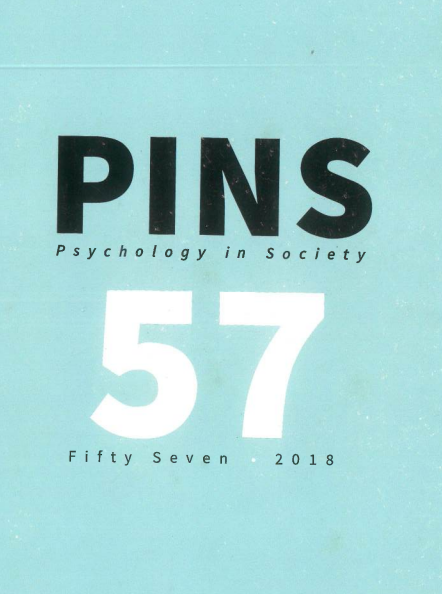Psychology and the problematic of “the African”
DOI:
https://doi.org/10.57157/pins2018Vol57iss2a6041Keywords:
Manganyi, making strange, African Other, Eurocentric, Western scientific practiceAbstract
In this commentary we extend Manganyi’s critique of Eurocentric and Western scientific practice of engaging the African Other as inherently strange and unfamiliar. This particular mode of representation and knowing the Other is functional in embodying a uniqueness that renders African bodies as non-human. It is also functional in reifying a science that pretends to objective practice. We take up Manganyi’s notion of making strange to interrogate some of the nuances of what it means to engage the Other in the context of a socio-political and historical analysis. We further present some of the problematics of trying to understand the current contexts of social ills in society through a lens that does not reproduce this dehumanising meaning of subjectivities and groups, and that does not end up making strange what we are trying to understand. Lastly, we posit some problematics concerning how Africans as colonised peoples have been made strange to themselves and become entangled in relations of violence and power that make the familiar unfamiliar even to themselves.
Downloads
Downloads
Published
How to Cite
Issue
Section
License
This journal is an open access journal, and the authors' and journal should be properly acknowledged, when works are cited.
Authors may use the publishers version for teaching purposes, in books, theses, dissertations, conferences and conference papers.
A copy of the authors’ publishers version may also be hosted on the following websites:
- Non-commercial personal homepage or blog.
- Institutional webpage.
- Authors Institutional Repository.
The following notice should accompany such a posting on the website: “This is an electronic version of an article published in PINS, Volume XXX, number XXX, pages XXX–XXX”, DOI. Authors should also supply a hyperlink to the original paper or indicate where the original paper (http://www.journals.ac.za/index.php/pins) may be found.
Authors publishers version, affiliated with the Stellenbosch University will be automatically deposited in the University’s’ Institutional Repository SUNScholar.
Articles as a whole, may not be re-published with another journal.
The copyright of the article(s) lies with the author(s).
The copyright of the journal lies with PINS-psychology in Society.
The following license applies:
Attribution CC BY-NC-ND 4.0 - https://creativecommons.org/licenses/by-nc-nd/4.0/

